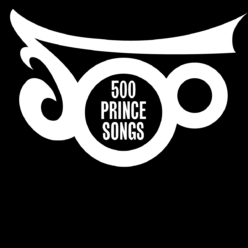Purple Rain (1984)
Try and count how many songs are called “I Would Die for You” and you’ll get lost deep in the double digits. Pop music can’t get enough of the phrase. The Weeknd and Ariana Grande topped the charts with it, Taylor Swift sings it in no less than three of her songs and when Bryan Adams used it to end a power ballad it became one of the best-selling singles of all time. That may be because the sentiment is catnip to teenagers. Think of the Pixar film Inside Out where Riley’s imaginary boyfriend does nothing but endlessly repeat, with a dramatic hand grab, that he would die for Riley. A schoolgirl’s idea of love painted with nothing more than that phrase and a Harry Styles haircut. From pre-teen crushes to the annihilating onslaught of first love, anything less than a declaration of the ultimate sacrifice seems deeply unserious. At that age you wonder how a force so powerful could not come with a bodycount?
In Purple Rain, this phrase is spoken with worldly gravitas by the actor Clarence Williams III, foreshadowing his character’s attempted suicide in the final act. A Pixar character he’s not. Yet despite the earnest delivery of these words, the song they inspire The Kid to write is curiously free of any of the melodrama you would expect from the young protagonist. It’s uplifting and persistently joyous with none of the histrionics or dramatic crescendos that characterise the Purple Rain album. There’s no build up at all. It starts, shimmers with electric brilliance for three minutes and then makes an Irish exit as Baby I’m a Star enters the scene.
Having been penned a couple of years earlier it makes sense that the song follows the locked groove playbook of the previous album. However, overshadowed by its more extravagant album mates, I Would Die 4 U can be a slow burn. It flew under my radar for a long time and it took hearing the chorus in an unfamiliar setting to finally make me notice this strange wallflower. Im sure those who remember the single shining in the chart sun had a different onboarding, but my Prince journey started shortly before the turn of the millennium, and the first time I heard I Would Die 4 U on the radio was when somebody calling themselves The Space Cowboy released a dance remix. Hearing the song divorced from the album, divorced from Prince, made me realise the pure pop power of that vocal hook. No shiny Baby I’m a Star to distract me afterwards – something easy to tune out took its place and for the first time I was able to reflect on its majesty. I then listened to the original and felt I heard it for the first time.
The song, previously nothing more than a launchpad into the film and album’s climactic dance number, was now a state of mind I desired to stay in forever. A tantric recharging of body and spirit. I live by the sea and sometimes I get the same feeling when I sit on the shoreline and stare out into the blue immensity while my physical body is pummelled by cold foreign winds. My chakras plug into the mains and the love that powers the universe courses through my arteries. I’m just a secular Godless sinner but when this track plays I’m intertwined with the Divine.
Which brings me to the lyrics. They are the most religious Prince had written to date and lean heavily into imagery of the Holy Trinity, with verses moving from the perspective of God (“I’m not a woman, I’m not a man”), through Jesus (“I’m your messiah”) and ending on the Holy Spirit (“I am a dove, I’m your conscious, I am love”). The title, no longer a solemn statement of pain-filled commitment, becomes a joyous celebration of his faith. Even if you read it as a straight-up love song, the religious imagery help imbue energising radiance into a message that often lands as either trite cliche (most of pop), leaden-hearted anguish (Clarence Williams III’s delivery) or both (hello Bryan Adams).
Watched in the context of the film, played over the final act montage, you can pick up several other inferences. Like all good lyrics, they work on multiple levels. But, after hearing the director reveal he added the line to the script after Prince told him his father once said the same words to him, the lasting image it leaves on me is an artist taking a cherished memory of rarely-expressed parental devotion, and returning it gift-wrapped in a love language to touch the heart of his devout bible-quoting father.




